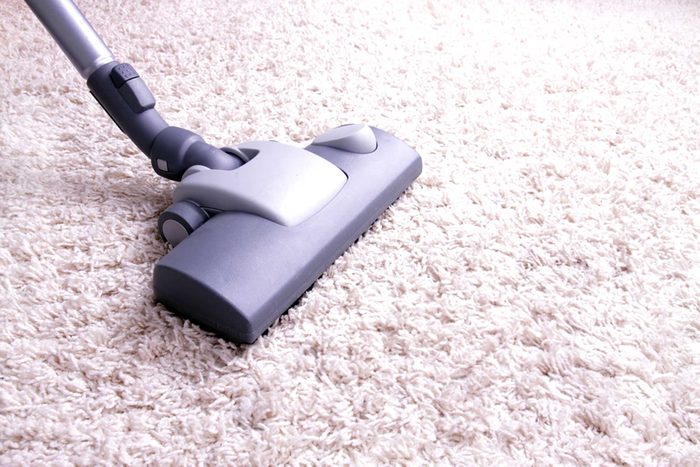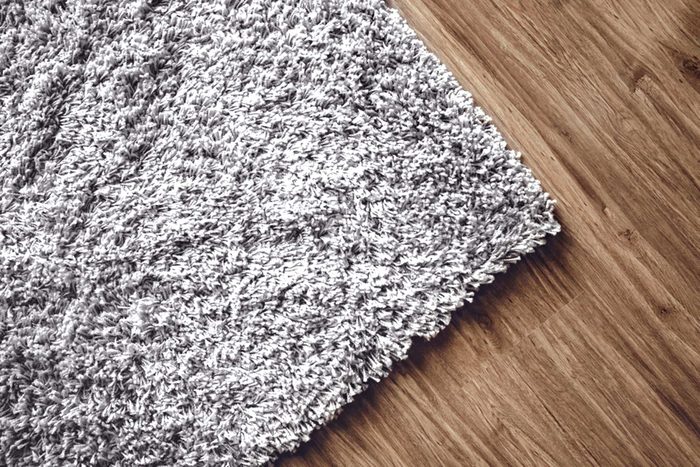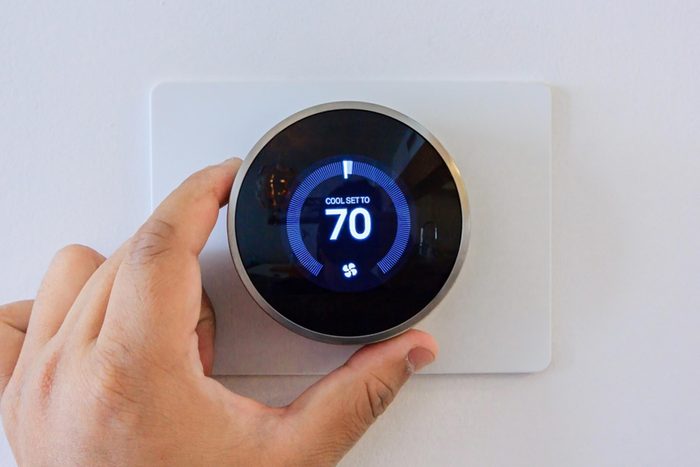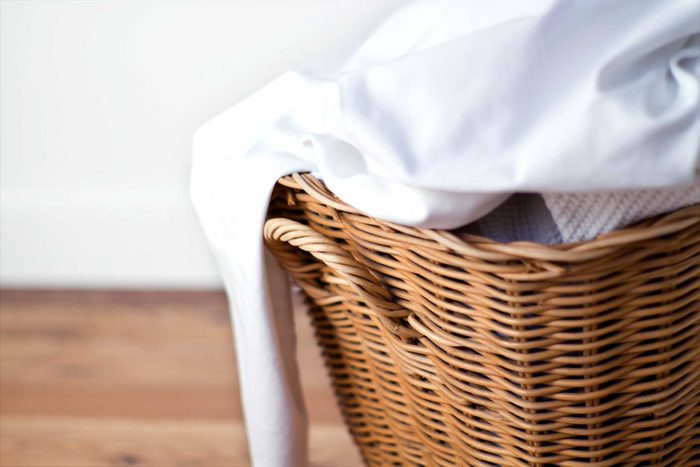Alleviate your allergies
About 50 million American adults have allergies, according to the Asthma and Allergy Foundation of America. So if you have allergies, you have plenty of company. But allergies aren’t “normal” and you shouldn’t have to suffer, notes Tania Elliot, MD, allergist and founder of EHE, a health care provider with an emphasis on preventative care. “Allergies are an abnormal reaction to something normally occurring in the environment; they cause allergy antibodies of the immune system to be developed to these normal things,” she explains. “When your body is exposed, the antibodies try to ‘kill off’ allergen, causing the release of a chemical called histamine, responsible for itching, redness, and swelling.” If you’re experiencing allergy symptoms, including congestion, runny nose, itchy eyes, swelling, itching, hives, headaches, and sinus pain/pressure, there are treatments that can help. Here are surprising ways to stop seasonal allergies. (Also, here’s what allergists wish you knew.)

Overhaul your home
It may not seem logical, but the cozy indoors is often worse for your allergies than the raw outdoors. “Cleaning your home helps limit your exposure to dust mite and danders—our indoor allergens,” says Sara Axelrod, MD, allergist at ENT and Allergy Associates in New York and New Jersey. Your home—with its fabric-covered furniture and pillows, its carpeting, tightly sealed windows, and warm, damp spaces—is like a field strewn with allergy landmines. So it’s essential that you do a top-to-bottom inventory of your house to determine where allergens are congregating (bedding, carpet, damp areas, and air filters are likely spots) and clean them up. (Here’s how you can keep prevent spring allergies from taking over your life.)

Get rid of mold
Beware of mold while you’re cleaning your home, especially as the weather warms up. Mold spores can get in your nose and cause hay fever symptoms or trigger asthma. Check beneath sinks, around air conditioning units, under carpet, and even on your children’s toys. “A humidity gauge to determine the percent humidity in the air in your home can provide information, as to the tendency for mold to grow indoors,” notes Dr. Axelrod. She recommends maintaining a humidity level of less than 50 percent to prevent or slow the growth of indoor molds. If levels read higher than this, a dehumidifier can bring down these levels. (Check out these other ways to get rid of mold in your house.)

Adjust your thermostat

Eat the right foods
Improper eating habits can cause health problems, and make existing ones worse. “While there is no evidence that diet can affect seasonal allergies, there are case reports of some foods decreasing allergic inflammation including ginger, turmeric, oily fish and citrus,” notes Dr. Axelrod. A 2013 study published in the journal Allergy Asthma & Immunology Research linked foods high in vitamin C to a reduction in allergic rhinitis caused by pollen.

Lose your extra pounds
Obesity and being overweight have been linked to everything from heart disease to increased rates of cancer. Carrying extra pounds also makes it harder to breathe—a problem you don’t want when you have allergies. A 2016 study published in The Journal of Allergy and Clinical Immunology found a link between obesity levels and allergies. More fat around your abdomen prevents your lungs from fully expanding and your diaphragm from moving downward, so it’s harder to get a good, deep breath. Losing weight will make getting the oxygen you need easier. (Here’s how you can flatten your belly—without exercise.)

Reduce stress
Every time you’re confronted with a stressor—whether a traffic jam, fire, or financial problem—your body releases a cascade of stress hormones. They, in turn, send a volley of signals to various parts of your body to prepare it for action. “When you are under stress, your body releases hormones and other chemicals, including histamine, the chemical that leads to allergy symptoms,” explains Dr. Axelrod. “While stress doesn’t actually cause allergies, it can make an allergic reaction worse by increasing the histamine in your body.” If this happens day in and day out without physical release, stress can inflict its damage by affecting the very network that is supposed to guard your health: your immune system. Learning to control stress—or, at least, the way you react to stress—can help. (Try these stress management tips to find the calm in your life.)

Wash your hair
While you might have heard that washing your hair less often can make it healthier, it certainly won’t help your allergies. “Pollen gets trapped in our hair when we’re outdoors and if you don’t wash or at least rinse out your hair after being outdoors in the pollen, you’re bringing all that pollen into bed with you and breathing it in all night,” says Dr. Axelrod. If you go to bed with pollen head, you’ll be coughing and sneezing all night long. Washing your hair before you hit the sack is a quick way to stop allergy symptoms. Here’s the truth about allergy myths you’ve probably always believed.

Wash your bedding, too
Your bed sheets pick up a lot of unwelcome oils and particles. Keep them free of dust mites and allergens by washing them once a week in hot water (at least 140 degrees), suggests Dr. Axelrod. Try these other smart strategies to keep your house dust-free.

Drink these teas
A cup of peppermint or chamomile tea every night could ease your allergy symptoms, notes Dr. Axelrod. Peppermint can help reduce inflammation, and chamomile is known as a natural antihistamine around the world. Pair your drink with these natural allergy remedies, and you’ll be set for the entire season.

Complement your regular allergy medication with alternative remedies
The following substances, when paired with your regular antihistamine, may help relieve allergy symptoms:
- A daily multivitamin and mineral supplement that includes magnesium, selenium, vitamin C, vitamin E, and all the B vitamins (These are the vitamin secrets doctors tell their friends.)
- Your choice of herbal supplements, dried ivy leaf, or pycnogenol
- A daily dose of echinacea taken two weeks on, two weeks off